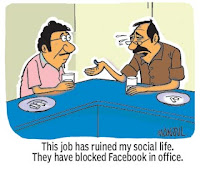Back to the Stone Age: Life after EDL
As Lebanese, what would shake us out of our smug complacency, out of our comfort zones and get us to finally take responsibility for our own country? I often wonder about that. Is it taking away our sacred morning Manoushe and Nescafe, or could it be a blanket ban on American muscle cars and four-wheel-drive vehicles on our roads? Could it be a ban on Shisha? or, could it be the removal of our support system, our extended tribal family and clan? Driving in to town the other day I figured it out. Take away our power… no, not our ability to command and bully others, our electrical power! For one thing, with nothing to do on those long nights, a lot more people would be having sex more often which means the maternity wards, nurseries, schools, and universities will be kept busy and productive over the next 20 years. (I wonder how one could harness the heat of bodies writhing in sweat, convert it to electricity, and hook it up to the grid. If we could do that we’d be assured a perpetual su
